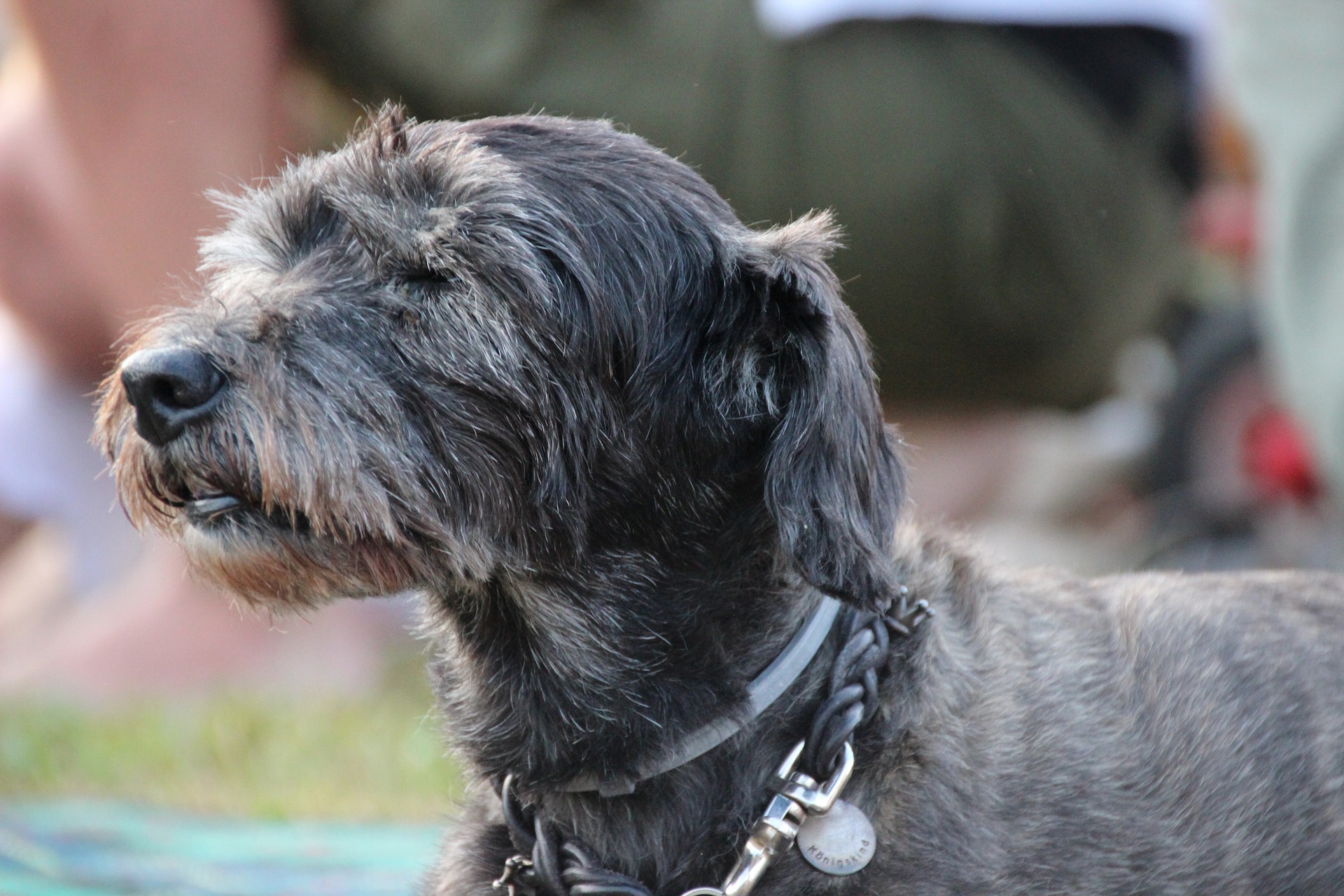Aging comes with some difficulties. Unfortunately, the natural degeneration of the senses is common for people and dogs alike. Starting on average at about 7 or 8 years of age, you may notice a decrease in your dog’s hearing abilities. High frequencies are usually the first to go, followed by progressively lower ones. Losing hearing means that you’ll need to adapt how you communicate and live with your senior dog.
Hand signals come in handy regardless of your dog’s hearing, but it becomes crucial as they age. If you rely heavily on verbal cues, begin incorporating hand signals into your daily communication as well. Be sure to practice using the hand signal without the verbal command. For those who use a clicker or praise word (“yes”, “good”, etc.) to mark when your dog performs the proper behavior, start using a hand signal as well. This could be a thumbs up or any other motion you choose. If you begin this process before they begin losing their hearing or as soon as you notice that their hearing is going, it will make the transition into senior life much easier for your dog.
With a hard-of-hearing dog, you may need to get creative when it comes to getting their attention. After all, if they don’t see your hand cues, they won’t know that you’re asking them to perform a behavior. If your dog is in the room, you could wave your hand to catch their eye. Alternatively, you can train them to respond to you when you stomp on the floor since this sends out a vibration. Some owners use touch to the shoulder as a way to get their pup’s attention while on a walk since you can’t stomp. Nowadays, vibration collars don’t send a shock but buzz slightly when you press a button on a remote. You should be able to quickly train your dog to look at you or come when they feel a vibration.
Total Hearing Loss
If your dog becomes entirely deaf, there are a few things to be aware of in your new day-to-day life. They may now be startled when you suddenly appear behind them or touch them when they didn’t see you coming. This is particularly true when you are rousing them from sleep. To help decrease their surprise, approach them with heavy footsteps so that they are likely to feel the vibrations as you get close. Never poke or touch them with any force; gently pat their back or rump. You generally want to avoid the head when walking a dog because they may nip when startled out of sleep.
Walks will change a little as well. Since your dog cannot hear, you must be their ears and watch other people and dogs approaching. Move your pup out of their way since they cannot hear them coming. Never let a deaf dog off-leash in an unfenced area since it’s not guaranteed you will be able to get their attention if you need to call them back quickly. Deaf dogs are more likely to wander into traffic and get hurt.
In everything, have patience and kindness toward your deaf or hard-of-hearing pet. Senior dogs may be losing their eyesight as well, making it seem like they are purposefully ignoring your call or cues. In reality, it’s just more challenging for them to notice. Work together to adapt to the changing circumstances and give them the best life during their senior years.
Gulf Coast K9 Dog Training loves dogs of all ages, and we are here to provide training for Sarasota area dogs, from puppies to mature dogs.





